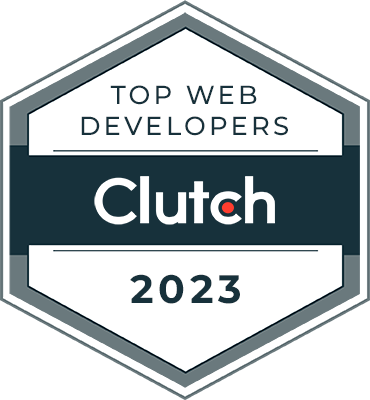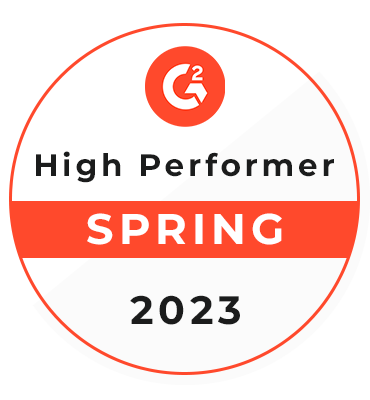AI MVP Development for Startups 2025: Build Smarter, Faster Products
Shyam Singh
Last Updated on: 13 November 2025
In 2025, the startup ecosystem is evolving at an unprecedented pace. Launching a product quickly and efficiently is crucial for success, but traditional MVP (Minimum Viable Product) approaches often fall short. Many startups invest heavily in building MVPs that fail to resonate with users or generate meaningful feedback, leading to wasted resources. Fortunately, AI-powered MVP development is changing the game, enabling startups to optimize resources, enhance user experiences, and accelerate time-to-market.
Why Most MVP Approaches Are Burning Cash
Traditional MVP development is often resource-intensive and prone to inefficiencies. Startups frequently spend months designing, coding, and testing a product only to discover that it does not meet user expectations. Some common reasons MVPs fail include:
- Lack of Data-Driven Insights: Decisions are made based on assumptions rather than validated data, resulting in features that users don’t need.
- Poor Feature Prioritization: Startups often try to include too many features in an MVP, which increases development time and cost.
- Inefficient Testing: Manual testing and QA processes can miss critical issues, leading to a subpar product launch.
- Slow Iteration: Without automation, feedback cycles are long, and pivoting based on user input becomes cumbersome.
These inefficiencies lead to what many call “burning cash” in MVP development. Startups spend money on features that don’t add value and often miss the opportunity to deliver a product that truly resonates with users.
The Role of AI in MVP Development
AI is revolutionizing MVP development by addressing these challenges. It enhances decision-making, automates repetitive tasks, and accelerates product iteration. Here’s how AI plays a crucial role:
1. AI-Powered Idea Validation
Before investing in development, AI tools analyze market trends, competitor products, and user behavior to assess the viability of a concept. Startups can identify high-potential ideas, reducing the risk of building an MVP that fails to gain traction.
2. Intelligent Feature Prioritization
AI analyzes historical data and user preferences to determine which features are most likely to succeed. This ensures that startups focus on delivering core value first, optimizing both time and resources.
3. Automated Prototyping
AI-driven design tools can generate wireframes, UI/UX prototypes, and design variations automatically. Startups can test multiple design concepts quickly, ensuring the MVP aligns with user expectations.
4. Efficient Coding with AI Assistants
AI coding assistants, like GitHub Copilot or ChatGPT, help developers write clean, error-free code faster. These tools can generate code snippets, suggest optimizations, and even assist with backend logic, significantly reducing development time.
5. Predictive Testing and QA
AI enhances testing by simulating thousands of user scenarios, identifying potential bugs, and predicting performance issues before launch. This ensures the MVP is robust and user-ready.
How Fulminous Software Helps Startups Build AI-Powered MVPs
At Fulminous Software, we specialize in helping startups transform innovative ideas into functional AI-driven MVPs that align perfectly with market needs. With extensive experience in AI development, automation, and product strategy, our expert team provides end-to-end support—from concept validation to post-launch optimization.
- Proven Expertise: Our team has successfully delivered 50+ AI-based startup MVPs across diverse industries, helping founders move from concept to launch faster and smarter.
- Customized AI Integration: We integrate cutting-edge AI tools into MVP workflows to automate design, coding, and testing—ensuring faster turnaround and cost efficiency.
- Data-Driven Development: Every MVP we build is backed by analytics and insights, reducing guesswork and focusing on real user needs.
- Scalable Architecture: Our MVPs are designed with scalability in mind, so startups can grow without costly re-engineering later.
Whether you’re validating a new idea or preparing for funding, Fulminous Software’s AI MVP development services provide the technical foundation and strategic guidance to make your vision a success.
Game-Changing Tools for Lean Startup and AI Integration
Several AI-powered tools are transforming MVP development for lean startups:
- Figma AI: Automates UI/UX design and prototyping.
- GitHub Copilot: AI-assisted coding and debugging for faster development.
- ChatGPT: Generates code, documentation, and testing strategies.
- Jasper AI: Creates marketing content, onboarding materials, and user guides.
- Testim & Functionize: Automates testing and predicts potential performance issues.
- Hotjar & FullStory: Provides AI-driven user behavior analytics to inform feature development.
Benefits of AI MVP Development for Startups
Integrating AI into MVP development offers numerous advantages:
1. Faster Time-to-Market
AI accelerates every stage of MVP development, enabling startups to launch products quickly and respond to market demands efficiently.
2. Cost Efficiency
By automating repetitive tasks and optimizing resource allocation, AI reduces operational costs, making MVP development more budget-friendly.
3. Data-Driven Decision Making
AI provides actionable insights to guide feature prioritization, product design, and development strategies, ensuring that every decision is backed by real data.
4. Enhanced User Experience
Predictive analytics and AI-generated designs improve the usability and overall experience of the MVP, increasing user satisfaction and adoption rates.
5. Scalability
AI allows startups to iterate rapidly, incorporating user feedback to scale the MVP effectively and efficiently.
Challenges of AI Integration in MVP Development
While AI offers many advantages, integrating it into MVP development comes with challenges:
- Data Quality: AI models rely on high-quality data to provide accurate predictions.
- Learning Curve: Teams must adapt to AI-powered workflows and tools.
- Cost of AI Tools: Some AI platforms require subscriptions or investments that may impact startup budgets.
- Balance Between AI and Human Creativity: Over-reliance on AI can limit innovation; human insight remains essential.
Future of AI MVP Development in 2025 and Beyond
As Artificial Intelligence continues to advance, the landscape of MVP development is set to undergo a major transformation. Startups and enterprises can expect significant changes in how products are conceptualized, built, and scaled. Here’s what the future holds:
1. Fully Automated MVP Generation
AI will enable the creation of fully automated MVPs, transforming ideas into functional prototypes with minimal manual intervention. From designing wireframes and generating user interfaces to coding backend functionalities, AI-driven platforms will accelerate the entire development process, allowing startups to launch products faster and more efficiently.
2. AI-Driven Predictive Analytics
Predictive analytics powered by AI will forecast product success, adoption rates, and potential user engagement. By analyzing historical data, market trends, and user behavior, AI can provide actionable insights that guide decision-making, helping startups focus on features and functionalities that are most likely to succeed.
3. Hyper-Personalized MVPs
AI will make it possible to create hyper-personalized MVPs tailored to the unique preferences and behaviors of individual users. This personalization will enhance user experience, increase adoption rates, and help startups build products that truly resonate with their target audience from the very first release.
4. Continuous AI Integration Across the Product Lifecycle
AI will be integrated into every stage of the product lifecycle, from ideation and development to testing, launch, and iteration. This continuous integration ensures that products can evolve rapidly based on real-time user feedback and performance analytics, enabling startups to stay competitive and responsive in a dynamic market.
In summary, the future of AI MVP development promises faster, smarter, and more user-centric product creation. By leveraging AI, startups can reduce development costs, minimize risks, and deliver products that align perfectly with market demands.
Best Practices for Startups Using AI in MVP Development
- Define Clear Objectives: Understand the problem your MVP aims to solve.
- Select the Right AI Tools: Choose solutions that align with your development needs.
- Leverage Data Analytics: Use AI insights to guide feature prioritization and product strategy.
- Iterate Based on Feedback: Continuously refine your MVP using AI-driven user feedback analysis.
- Maintain Human Creativity: Balance AI recommendations with innovative thinking and market understanding.
Conclusion
AI MVP development is revolutionizing how startups approach product launches in 2025. By leveraging AI for idea validation, prototyping, coding, testing, and analytics, startups can reduce costs, accelerate time-to-market, and create products that truly meet user needs. Partnering with Fulminous Software ensures your startup benefits from proven expertise, tailored AI strategies, and scalable development solutions that turn your vision into a successful reality.
Call to Action: Harness the power of AI in your MVP development today to accelerate your startup’s growth. Contact our AI experts now!

 Verified
Expert in Software & Web App Engineering
Verified
Expert in Software & Web App Engineering
I’m Shyam Singh, Founder of Fulminous Software Private Limited, headquartered in London, UK. We are a leading software design and development company with a strong global presence across the UK, USA, Australia, and Europe. At Fulminous Software, we specialize in building custom web applications, e-commerce platforms, ERP systems, and AI-driven digital solutions tailored to diverse industries. With deep expertise in Artificial Intelligence, automation, and data-driven development, our mission is to empower businesses through innovative technology—helping them enhance efficiency, accelerate growth, and stay competitive in the digital era.
Partner with Top-Notch Web Application Development Company!
Discuss your Custom Application Requirements on info@fulminoussoftware.com or call us on +1-903 488 7170.
15 Days Risk-Free TrialRecommended Articles


